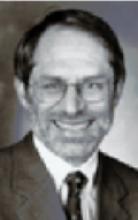An overhead page interrupted my reverie; a usually placid nurse came running over: “Doctor, we have a problem.” Resuscitation was already started. The patient was blue and had no pulse. I began chest compressions as my colleague started to bag the patient and ACLS was initiated. A senior resident took over the chest compressions and I went over to talk to the family.
I silently reviewed what I knew about the family and patient, a mechanic who had begun to forget familiar things, like the alarm code at the car lot. He had come reluctantly to our office—his wife and daughter were concerned about Alzheimer’s disease. A picture of gradual memory impairment and increasing behavioral changes emerged. We discussed the prognosis, behavioral approaches, support groups, and treatment.
Following that initial encounter, I can’t remember when the issue of chest discomfort arose—the patient never complained to his family of chest pain. Like much of what happens in medicine, its discovery was a matter of routine diligence or dumb luck. At today’s visit, he had been free of discomfort over the last few days. He didn’t ascribe much significance to his vague symptoms.
His EKG, though, was not vague. I was surprised: “Good thing we checked.” We discussed options and settled on an urgent cardiology evaluation and a raft of medications. Death forestalled, the patient went into the restroom. When he hadn’t emerged in 5 minutes and wouldn’t respond to a knock, the door was unlocked and his body found on the floor.
“We are doing everything possible, but it doesn’t look good.” These words always sound hollow and insufficient when death calls unexpectedly. As the rescue squad rushed away, I gave directions to the daughter, knowing the small likelihood of a positive outcome. The expected news from the hospital came even before the frantic call from the family—they were lost, needed more directions. Better they receive bad news in person.
I spoke to the daughter the next day, and said how sorry I was—if only we had checked on him more quickly, summoned the ambulance sooner…. But the daughter was appreciative, guilty that she hadn’t divined her father’s problem sooner. I reassured her, provided my absolution, a liturgy of forgiveness.
She stopped in the office again the other day. She offered me a hug. “You lost your father too, recently?” Yes, but we had time to prepare. “It must be hard.”
Yes, death shouldn’t have the temerity to invade our office, our sanctuary. We talked about her mother, the reunion of family, the funeral. Death humbles us all; it is sad and sobering that the thread of life so thin. It is not only in the cure that good work is done, but during that bridge from life to death, and in ministering to those left living.


